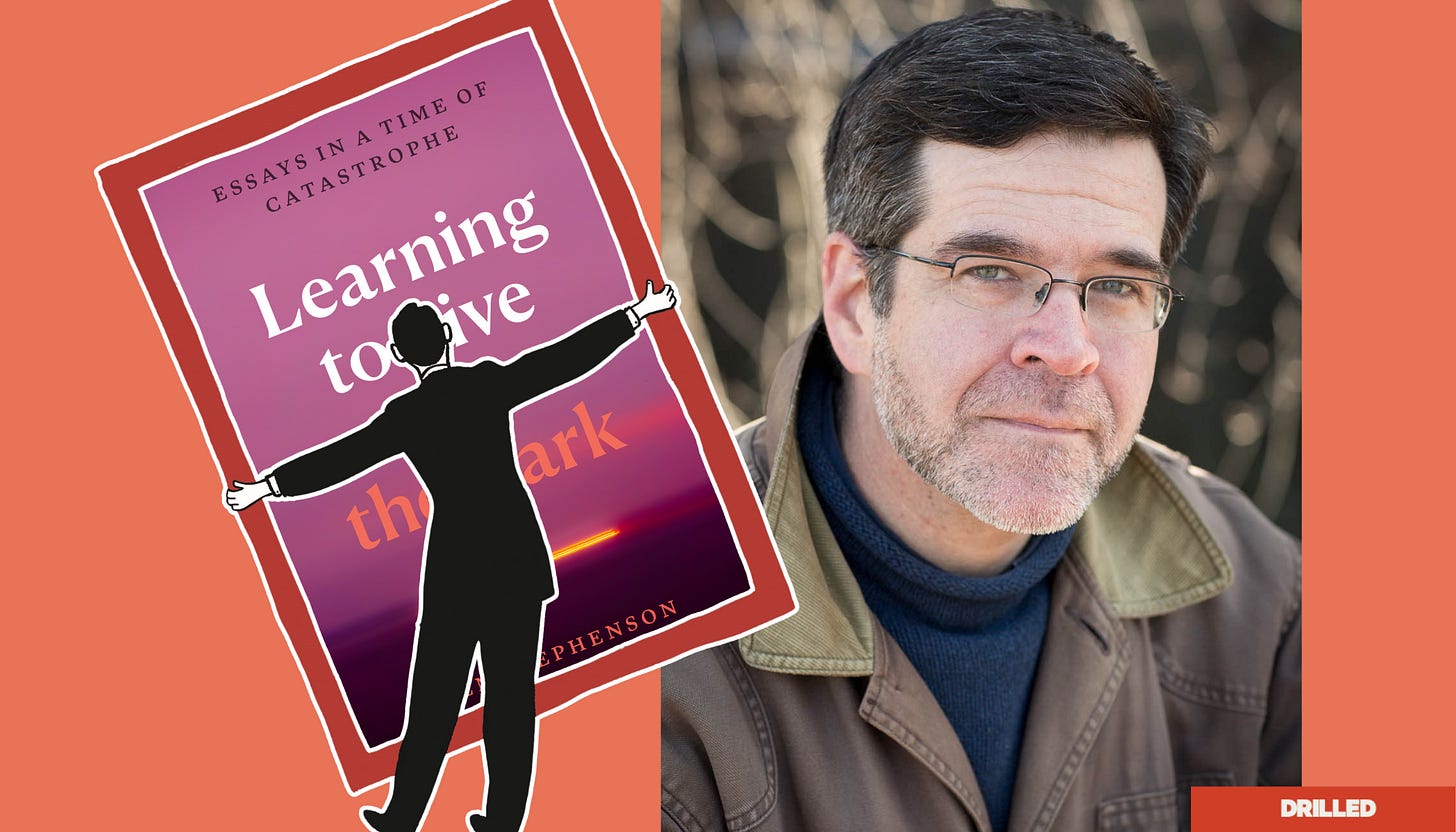‘Hope is abstract. Resolve is visceral.’
A conversation for Drilled with Wen Stephenson, author of ‘Learning to Live in the Dark’
What should you do with climate despair?
In his new book, Learning to Live in the Dark: Essays in a Time of Catastrophe, climate activist and journalist
argues that the only way to confront the crisis (indeed, the crises) of our time is to meet despair head-on—to see it for what it is, to feel it, and to accept what it means about where we are and where we must go.In a conversation for Drilled that was recorded in July, I spoke with Wen about how he processes his own climate despair; what scholars of totalitarianism like Hannah Arendt and Albert Camus can teach us about fossil fascism; and whether a mass movement for climate action might not come together until enough people are desperate enough. This conversation, as Wen describes the book, is about “how to live into this era of climate and political and social catastrophe… while holding on to our humanity.”
Perhaps, rather than resisting despair, the path forward lies in accepting it.
To read a condensed and edited version of our conversation, head over to Drilled: “What Should You Do with Climate Despair?” To listen to the whole thing, click or tap below, or search for “Drilled” wherever you get your podcasts.
Content notice: The audio version of our conversation briefly discusses suicide. If you are in crisis, please call, text, or chat with the Suicide and Crisis Lifeline at 988, or contact the Crisis Text Line by texting TALK to 741741. If you are outside of the United States, please head here for a list of international suicide hotlines.


